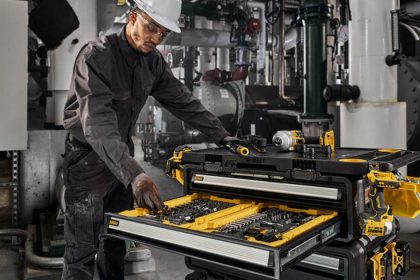Work Health and Safety Ministers from across the states and territories met last Friday to clarify details surrounding the impending engineered stone ban.
State and territory governments around the country are now in universal agreement to prohibit the use, supply, and manufacture of all engineered stone under federal WHS laws from July 1 this year.
The Friday meeting also confirmed a transition period until 31 December 2024 across most jurisdictions to allow tradies to honour pre-existing contracts for the deadly stone signed before this year.
Ministers further agreed on a definition of engineered stone concerning the ban (“an artificial product that contains crystalline silica; and is created by combining natural stone materials with other chemical constituents such as water, resins or pigments; and undergoes a process to become hardened”) which will be limited to engineered stone benchtops, panels and slabs.
Sintered stone and porcelain products, including benchtops, panels and slabs, won’t be included in the ban, nor are other building products such as bricks, pavers and other similar blocks, concrete and cement products, ceramic wall and floor tiles, roof tiles, plasterboard, and grout, mortar and render, as well as natural stone.
However, there are still question marks regarding the importation of the deadly product, with WHS representatives declaring it a decision for the Federal Government.
Meanwhile, the legality of viable alternatives, such as a new zero-silica engineered stone, remains unclear.
Western Australia Industrial Relations Minister Simone McGurk, who attended the meeting, says the short transition period is necessary to protect workers.
“We know that silicosis can kill – and of the 48 silicosis cases identified in WA since 2018, 43 relate to engineered stone.
“The six-month transition will help reduce the impact on the industry; however, given mounting scientific evidence, there was no question we had to act and act quickly.”
Australia became the first country in the world to ban engineered stone late last year.
Typically installed throughout Aussie kitchens and bathrooms, the manufactured benchtop stone has been heavily scrutinised since being linked to a debilitating lung condition – silicosis.
Nicknamed “the new asbestosis”, silicosis is caused by breathing the ultra-fine silica dust produced while cutting the stone, with estimates that 100,000 tradies will develop the condition in their lifetime.
After years of campaigning by tradies and the Construction, Forestry, and Maritime Employees Union, Safe Work Australia finally recommended a ban after its report found no safe level of dust emitted when the engineered stone is cut.
As word of the product’s dangers began to spread, so too did the dominos start to fall—with Aussie retailers banning the engineered stone from their shelves, unions preventing it from being imported or brought onto job sites, and construction companies and property developers refusing to use it for building projects.
However, despite welcoming Friday’s meeting’s positive steps, CFMEU National Secretary Zach Smith says the union is still concerned artificial stone manufacturers will attempt to rebrand the product to circumvent the ban.
“Our union is deeply concerned evil manufacturers are rebranding engineered stone under other names in a bid to keep profiting from the deaths of workers. Deadly engineered stone products should not be allowed to hide under new fake names,” he said.
Mr Smith warned those who may wish to see the transition period extended, saying every extra day could cost another tradie their life.
“There is zero need to extend the implementation period for the ban. Any day we wait is another day dust disease death sentences will be handed to workers exposed to engineered stone.
“Any attempt to stand in the way or delay this ban needs to be called out for what it is: a shameless bid to kill more workers.”
“No worker should contract a deadly dust disease from working with engineered stone after that date.”
Queensland is one state that has yet to agree to the transition period dates, leaving builders in limbo regarding outstanding contracts and leftover stock.
“We are waiting for confirmation from the Queensland Government as to whether they will implement such transitional arrangements,” a spokesperson from Master Builders Queensland said.
“Don’t forget, while the ban contains some exclusions, if you work with silica-containing products, including natural stone; you must apply all safety measures.”
Those safety measures are set to increase in September this year, with further regulations implemented for high-risk silica work coming into effect, such as a silica risk control plan, silica-specific training, exposure reporting, and air and health monitoring.







